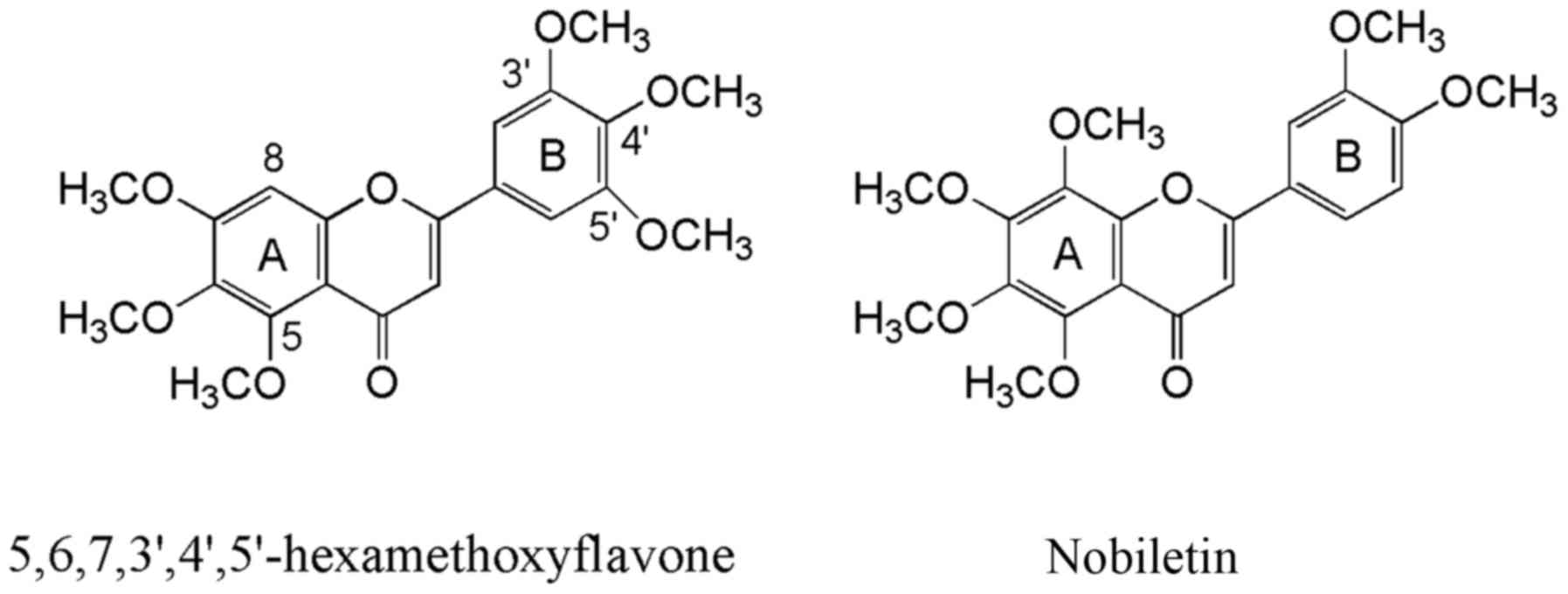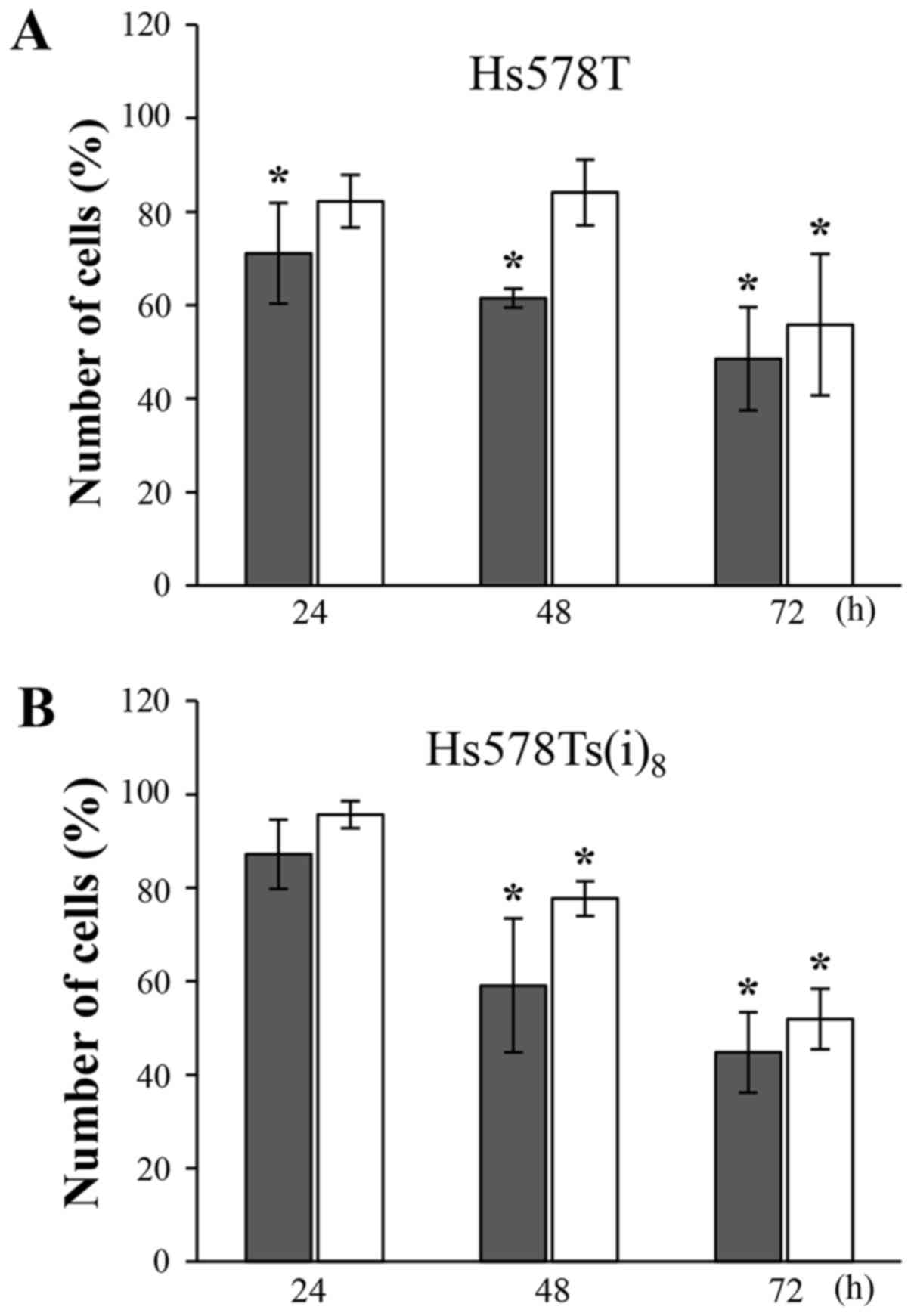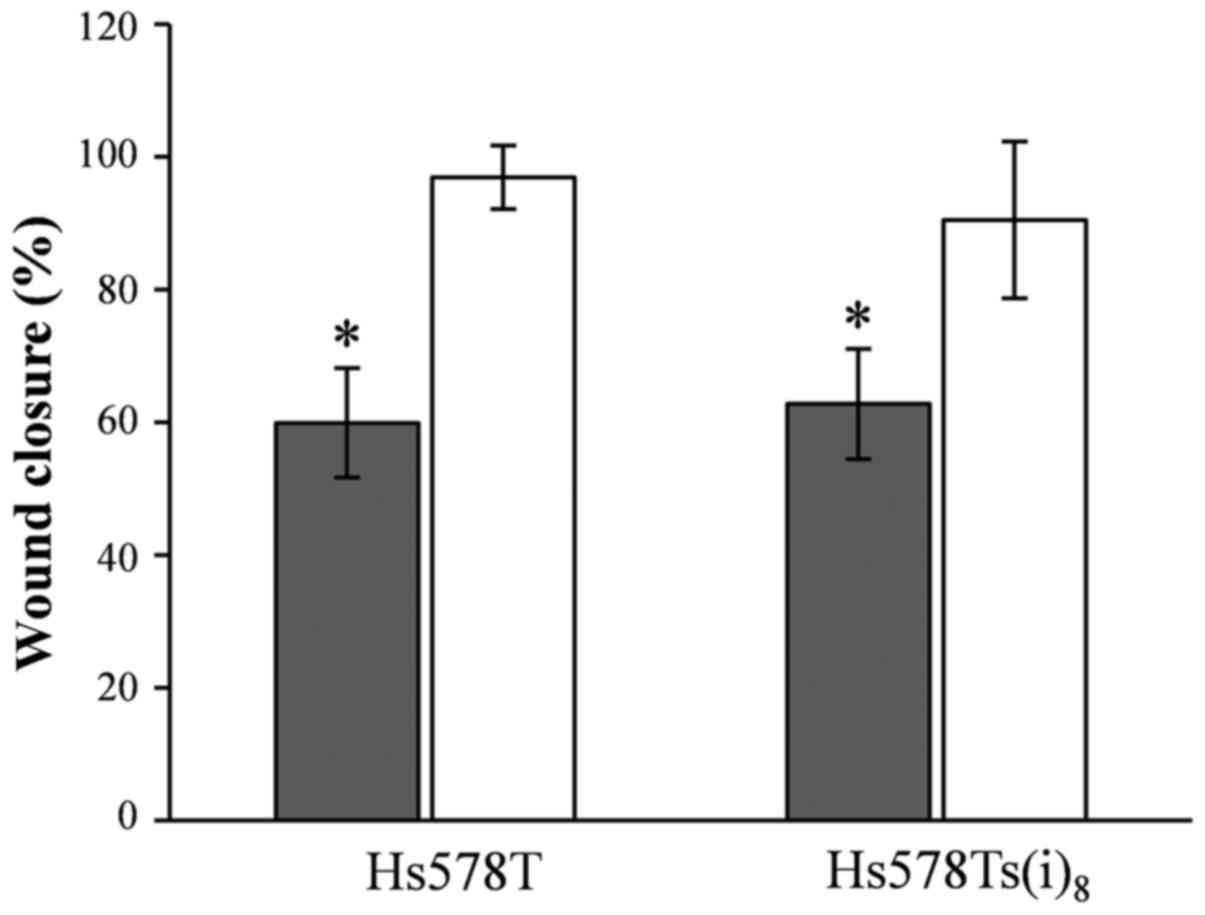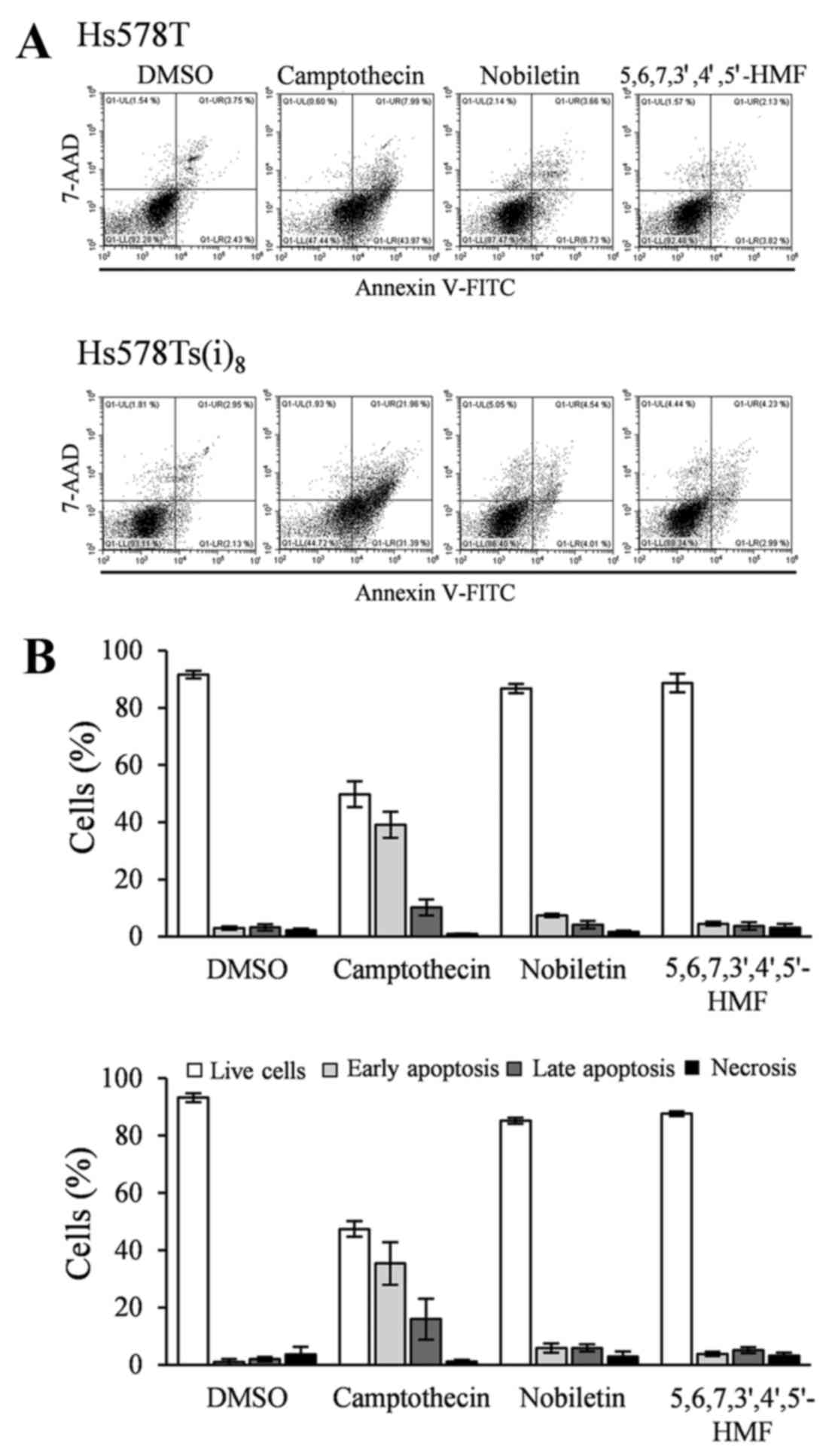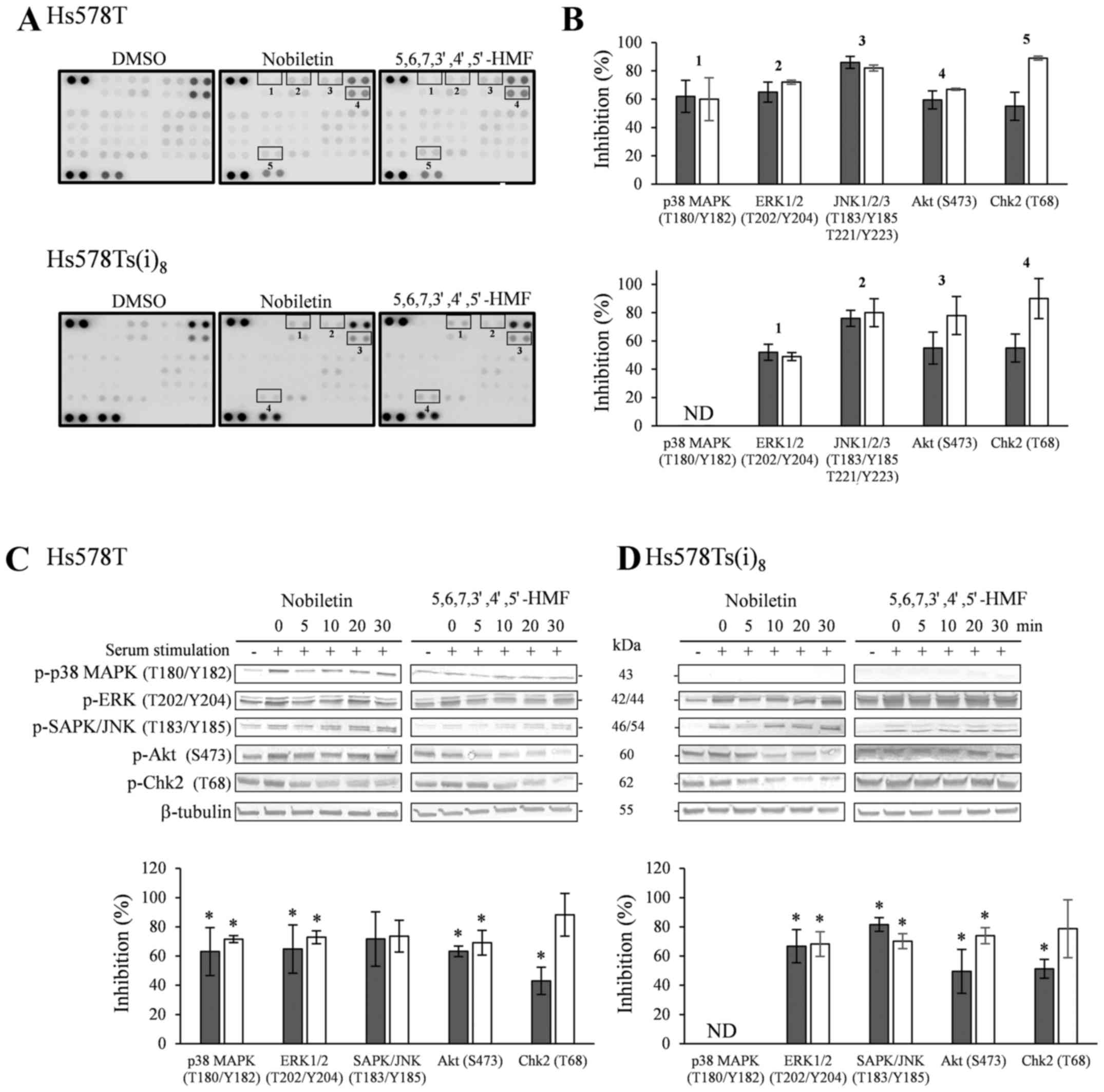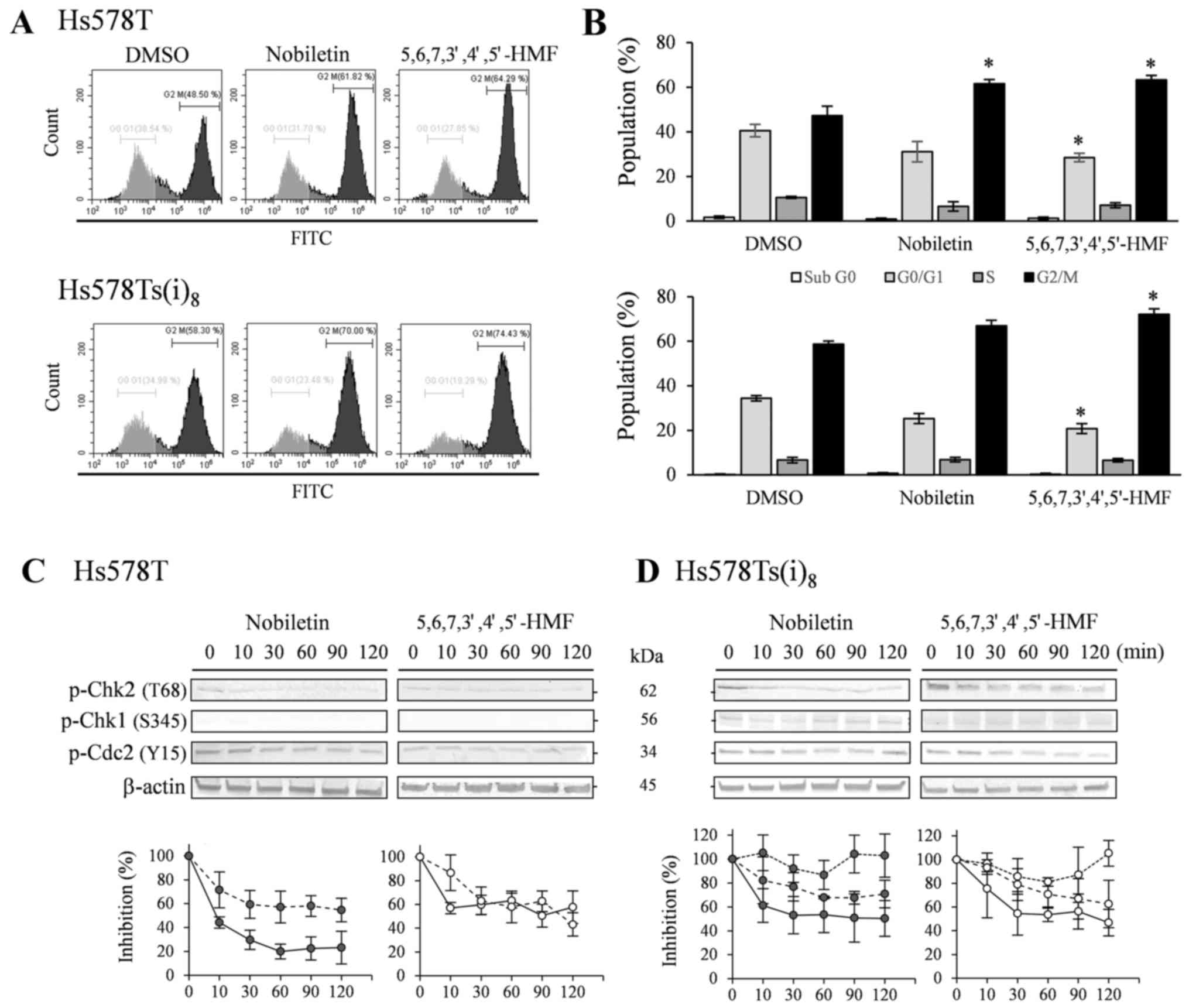|
1
|
Newman DJ and Cragg GM: Natural products
as sources of new drugs over the last 25 years. J Nat Prod.
70:461–477. 2007. View Article : Google Scholar : PubMed/NCBI
|
|
2
|
Orphan Drug status for alvocidib. Oncology
Times. 25–May. 2014, https://doi.org/10.1097/01.COT.0000450374.31680.1d.
|
|
3
|
Sak K: Cytotoxicity of dietary flavonoids
on different human cancer types. Pharmacogn Rev. 8:122–146. 2014.
View Article : Google Scholar : PubMed/NCBI
|
|
4
|
Walle T: Methoxylated flavones, a superior
cancer chemopreventive flavonoid subclass? Semin Cancer Biol.
17:354–362. 2007. View Article : Google Scholar : PubMed/NCBI
|
|
5
|
Mizuno M, Iinuma M, Ohara M, Tanaka T and
Iwamasa M: Chemotaxonomy of the genus Citrus based on
polymethoxyflavones. Chem Pharm Bull (Tokyo). 39:945–949. 1991.
View Article : Google Scholar
|
|
6
|
Yenjai C, Prasanphen K, Daodee S,
Wongpanich V and Kittakoop P: Bioactive flavonoids from Kaempferia
parviflora. Fitoterapia. 75:89–92. 2004. View Article : Google Scholar
|
|
7
|
Faqueti LG, Brieudes V, Halabalaki M,
Skaltsounis AL, Nascimento LF, Barros WM, Santos AR and Biavatti
MW: Antinociceptive and anti-inflammatory activities of
standardized extract of polymethoxyflavones from Ageratum
conyzoides. J Ethnopharmacol. 194:369–377. 2016. View Article : Google Scholar : PubMed/NCBI
|
|
8
|
Lien LM, Wang MJ, Chen RJ, Chiu HC, Wu JL,
Shen MY, Chou DS, Sheu JR, Lin KH and Lu WJ: Nobiletin, a
polymethoxylated flavone, inhibits glioma cell growth and migration
via arresting cell cycle and suppressing MAPK and Akt pathways.
Phytother Res. 30:214–221. 2016. View
Article : Google Scholar
|
|
9
|
Huang H, Li L, Shi W, Liu H, Yang J, Yuan
X and Wu L: The multifunctional effects of nobiletin and its
metabolites in vivo and in vitro. Evid Based Complement Alternat
Med. 2016:29187962016. View Article : Google Scholar :
|
|
10
|
Chien SY, Hsieh MJ, Chen CJ, Yang SF and
Chen MK: Nobiletin inhibits invasion and migration of human
nasopharyngeal carcinoma cell lines by involving ERK1/2 and
transcriptional inhibition of MMP-2. Expert Opin Ther Targets.
19:307–320. 2015. View Article : Google Scholar : PubMed/NCBI
|
|
11
|
Surichan S, Androutsopoulos VP, Sifakis S,
Koutala E, Tsatsakis A, Arroo RR and Boarder MR: Bioactivation of
the citrus flavonoid nobiletin by CYP1 enzymes in MCF7 breast
adenocarcinoma cells. Food Chem Toxicol. 50:3320–3328. 2012.
View Article : Google Scholar : PubMed/NCBI
|
|
12
|
Chen C, Ono M, Takeshima M and Nakano S:
Antiproliferative and apoptosis-inducing activity of nobiletin
against three subtypes of human breast cancer cell lines.
Anticancer Res. 34:1785–1792. 2014.PubMed/NCBI
|
|
13
|
Andreopoulou E, Schweber SJ, Sparano JA
and McDaid HM: Therapies for triple negative breast cancer. Expert
Opin Pharmacother. 16:983–998. 2015. View Article : Google Scholar : PubMed/NCBI
|
|
14
|
Adebayo AH, Jig CJ, Zhang YM, He WJ, Zeng
GZ, Han HJ, Xu JJ, Akindahunsi AA and Tana NH: A new chromene
isolated from Ageratum conyzoides. Nat Prod Commun. 6:1263–1265.
2011.PubMed/NCBI
|
|
15
|
Itoh T, Ohguchi K, Iinuma M, Nozawa Y and
Akao Y: Inhibitory effects of polymethoxy flavones isolated from
Citrus reticulate on degranulation in rat basophilic leukemia
RBL-2H3: Enhanced inhibition by their combination. Bioorg Med Chem.
16:7592–7598. 2008. View Article : Google Scholar : PubMed/NCBI
|
|
16
|
Hughes L, Malone C, Chumsri S, Burger AM
and McDonnell S: Characterisation of breast cancer cell lines and
establishment of a novel isogenic subclone to study migration,
invasion and tumourigenicity. Clin Exp Metastasis. 25:549–557.
2008. View Article : Google Scholar : PubMed/NCBI
|
|
17
|
Romijn JC, Verkoelen CF and Schroeder FH:
Application of the MTT assay to human prostate cancer cell lines in
vitro: Establishment of test conditions and assessment of
hormone-stimulated growth and drug-induced cytostatic and cytotoxic
effects. Prostate. 12:99–110. 1988. View Article : Google Scholar : PubMed/NCBI
|
|
18
|
Rasband WS: ImageJ. U. S. National
Institutes of Health; Bethesda, Maryland, USA: https://imagej.nih.gov/ij/.
1997–2016
|
|
19
|
Payan I, McDonnell S, Torres HM, Steelant
WF and Van Slambrouck S: FAK tyrosine 407 organized with integrin
αVβ5 in Hs578Ts(i)8 advanced triple-negative breast
cancer cells. Int J Oncol. 48:2043–2054. 2016. View Article : Google Scholar : PubMed/NCBI
|
|
20
|
Mustacchi G and De Laurentiis M: The role
of taxanes in triple-negative breast cancer: Literature review.
Drug Des Devel Ther. 9:4303–4318. 2015. View Article : Google Scholar : PubMed/NCBI
|
|
21
|
Lehmann BD, Bauer JA, Chen X, Sanders ME,
Chakravarthy AB, Shyr Y and Pietenpol JA: Identification of human
triple-negative breast cancer subtypes and preclinical models for
selection of targeted therapies. J Clin Invest. 121:2750–2767.
2011. View Article : Google Scholar : PubMed/NCBI
|
|
22
|
Van Slambrouck S, Parmar VS, Sharma SK, De
Bondt B, Foré F, Coopman P, Vanhoecke BW, Boterberg T, Depypere HT,
Leclercq G, et al: Tangeretin inhibits
extracellular-signal-regulated kinase (ERK) phosphorylation. FEBS
Lett. 579:1665–1669. 2005. View Article : Google Scholar : PubMed/NCBI
|
|
23
|
McConathy J and Owens MJ: Stereochemistry
in drug action. Prim Care Companion J Clin Psychiatry. 5:70–73.
2003. View Article : Google Scholar
|
|
24
|
Baek SH, Kim SM, Nam D, Lee JH and Ahn KS,
Choi SH, Kim SH, Shim BS, Chang IM and Ahn KS: Antimetastatic
effect of nobiletin through the down-regulation of CXC chemokine
receptor type 4 and matrix metallopeptidase-9. Pharm Biol.
50:1210–1218. 2012. View Article : Google Scholar : PubMed/NCBI
|
|
25
|
Sp N, Kang DY, Joung YH, Park JH, Kim WS,
Lee HK, Song KD, Park YM and Yang YM: Nobiletin inhibits
angiogenesis by regulating Src/FAK/STAT3-mediated signaling through
PXN in ER+ breast cancer cells. Int J Mol Sci.
18:9352017. View Article : Google Scholar
|
|
26
|
Dong Y, Ji G, Cao A, Shi J, Shi H, Xie J
and Wu D: Effects of sinensetin on proliferation and apoptosis of
human gastric cancer AGS cells. Zhongguo Zhong Yao Za Zhi.
36:790–794. 2011.In Chinese. PubMed/NCBI
|
|
27
|
Burkhard K and Shapiro P: Use of
inhibitors in the study of MAP kinases. Methods Mol Biol.
661:107–122. 2010. View Article : Google Scholar : PubMed/NCBI
|
|
28
|
Zannini L, Delia D and Buscemi G: CHK2
kinase in the DNA damage response and beyond. J Mol Cell Biol.
6:442–457. 2014. View Article : Google Scholar : PubMed/NCBI
|
|
29
|
Singh SV, Herman-Antosiewicz A, Singh AV,
Lew KL, Srivastava SK, Kamath R, Brown KD, Zhang L and Baskaran R:
Sulforaphane-induced G2/M phase cell cycle arrest involves
checkpoint kinase 2-mediated phosphorylation of cell division cycle
25C. J Biol Chem. 279:25813–25822. 2004. View Article : Google Scholar : PubMed/NCBI
|
|
30
|
Sancar A, Lindsey-Boltz LA, Unsal-Kaçmaz K
and Linn S: Molecular mechanisms of mammalian DNA repair and the
DNA damage checkpoints. Annu Rev Biochem. 73:39–85. 2004.
View Article : Google Scholar : PubMed/NCBI
|
|
31
|
Zhou BB and Bartek J: Targeting the
checkpoint kinases: Chemosensitization versus chemoprotection. Nat
Rev Cancer. 4:216–225. 2004. View Article : Google Scholar : PubMed/NCBI
|
|
32
|
DiPaola RS: To arrest or not to G2-M
cell-cycle arrest. Clin Cancer Res. 8:3512–3519. 2002.
|















